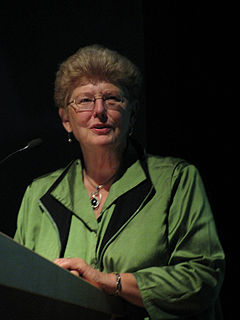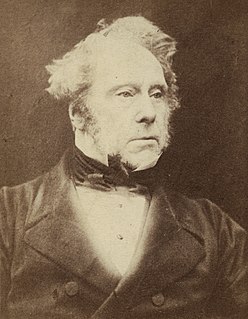Top 1200 Literary Merit Quotes & Sayings - Page 3
Explore popular Literary Merit quotes.
Last updated on December 19, 2024.
I'm a storyteller, I'm not a literary writer, and I don't want to be a literary writer. People say to me, "Oh, when are you going to write something different?" What? I don't want to write anything different. I'm writing relationships between people, all different colors, all different sizes, all different sexual orientations, and that's what I want to do.
Lulled into somnolence by five hundred years of print, literary studies have been slow to wake up to the importance of MSA (media-specific analysis). Literary criticism and theory are shot through with unrecognized assumptions specific to print. Only now, as the new medium of electronic textuality vibrantly asserts its presence, are these assumptions clearly coming into view.
My favorite method of encryption is chunking revolutionary documents inside a mess of JPEG or MP3 code and emailing it off as an "image" or a "song." But besides functionality, code also possesses literary value. If we frame that code and read it through the lens of literary criticism, we will find that the past hundred years of modernist and postmodernist writing have demonstrated the artistic value of similar seemingly arbitrary arrangements of letters.
Everybody should read fiction… I don’t think serious fiction is written for a few people. I think we live in a stupid culture that won’t educate its people to read these things. It would be a much more interesting place if it would. And it’s not just that mechanics and plumbers don’t read literary fiction, it’s that doctors and lawyers don’t read literary fiction. It has nothing to do with class, it has to do with an anti-intellectual culture that doesn’t trust art.
Put your hand on your heart to keep it from flying off to the lovely magical literary island Mary Ann Shaffer and Annie Barrows have created in The Guernsey Literary and Potato Peel Pie Society. This novel is a delightful mix of fine writing, powerful emotions, glorious settings and amazing characters who deal with life in a way that will have readers falling in love on every single page.
I want my books to exist in the literary world, not only in the art world. I am interested in having a dialogue with other writers, and the readers of those writers. Someone who is reading a book of mine might not have visited my exhibitions related to it, but can still have a full, literary experience with that book. This would be a completely different experience from stepping into the show, not having read the book. One form is not illustrative of the other.
We have gone for decades now with no immigration plan. Now we have one. It's a common sense immigration plan that has proven to work. It's the same one in Canada, same thing in New Zealand and Australia. One aspect of the plan is merit-based entry into the country. You get in based on merit. It's a point system. You get in on your ability to speak English, and you get in on your ability to hold a job and work a job and produce an income.
Every genuinely literary style, from the high authorial voice to Foster Wallace and his footnotes-within-footnotes, requires the reader to see the world from somewhere in particular, or from many places. So every novelist's literary style is nothing less than an ethical strategy - it's always an attempt to get the reader to care about people who are not the same as he or she is.
Edmund Wilson was our greatest American literary critic because he was more than a literary critic: He was a fearless, even radical judge of the society he lived in. (See, for example, _A Piece of My Mind_; _The Cold War and the Income Tax_; the introduction to _Patriotic Gore_.) Our conventional critics cannot forgive him for those scandalous lapses in good taste.
I feel engaged with young people in Pakistan. But that said, it's still a small minority that reads novels, literary fiction. But it isn't necessarily a small minority of the wealthy elite in the city of Lahore. It can often be and I often do meet at literary festivals students who've ridden a bus 12 hours from a very small town just to hear some of their favorite writers come and speak.
My advice for finding a literary agent would be first, put your work out there as much as possible and hopefully someone will find you, because I still have literary agents writing to me after they find my site. You want someone who understands your work and is going to be your cheerleader from day one.
First one gets works of art, then criticism of them, then criticism of the criticism, and, finally, a book on The Literary Situation , a book which tells you all about writers, critics, publishing, paperbacked books, the tendencies of the (literary) time, what sells and how much, what writers wear and drink and want, what their wives wear and drink and want, and so on.
All I am in private life is a literary critic and historian, that's my job...And I'm prepared to say on that basis if anyone thinks the Gospels are either legends or novels, then that person is simply showing his incompetence as a literary critic. I've read a great many novels and I know a fair amount about the legends that grew up among early people, and I know perfectly well the Gospels are not that kind of stuff.
Literary men now routinely tell their readers about their divorces. One literary man who reviews books wrote, in reviewing a study of Ruskin, that he had never read a book by Ruskin but that the study confirmed him in his belief that he didn't want to read a book by Ruskin. This man very often writes about his family life.
A word, and all the infinite fluctuations it may possess. Like that moment when you know you have something to say, and you know you're speaking, even, but you still have no idea how you will say it. Or the moment when, as a reader, you're reading, and you are understanding what you are reading, but still have utterly no idea what will come next for you, what precisely the author wants to say. For me, that is the ultimate level of literary depth, of literary density.
I use biography, I use literary connections (as with Platen - this seems to me extremely helpful for appreciating the nuances of Mann's and Aschenbach's sexuality), I use philosophical sources (but not in the way many Mann critics do, where the philosophical theses and concepts seem to be counters to be pushed around rather than ideas to be probed), and I use juxtapositions with other literary works (including Mann's other fiction) and with works of music.
I don't know that I had a sense that there was such a thing as "the poetry world" in the 1960s and early 70s. Maybe poets did, but for me as an onlooker and reader of poetry, poetry felt like it was part of a larger literary world. I mean, even the phrase "the poetry world" reflects a sort of balkanization of American literary and artistic life that has to some extent happened since then.
The ratio of authentic literature to trash in pornography may be somewhat lower than the ratio of novels of genuine literary meritto the entire volume of sub-literary fiction produced for mass taste. But it is probably not lower than, for instance, that of another somewhat shady sub-genre with a few first-rate books to its credit, science fiction.
I have seen quite a few folk whom I know to be both fair minded and, as it happens,[Bob] Dylan fans, take up cudgels for this position. To them, it's not necessarily that Dylan doesn't merit the highest honour. It's that he doesn't merit this specific highest honour [Nobel prize], in the way a champion pole vaulter shouldn't be given a medal for the long jump. It is in this group that the Wahey!s are mainly to be found, firing off jests, or mock solemnly reciting Dylan's sillier lyrics as if these are entirely representative of his oeuvre.
These self-appointed deacons in the Church of Latter-Day American Literature seem to regard generosity (of words) with suspicion, texture with dislike, and any broad literary stroke with outright hate. The result is a strange and arid literary climate where a meaningless little fingernail paring like Nicholson Baker's Vox becomes an object of fascinated debate and dissection, and a truly ambitious American novel like Matthew's Heart of the Country is all but ignored.
The idea of some kind of objectively constant, universal literary value is seductive. It feels real. It feels like a stone cold fact that In Search of Lost Time, by Marcel Proust, is better than A Shore Thing, by Snooki. And it may be; Snooki definitely has more one-star reviews on Amazon. But if literary value is real, no one seems to be able to locate it or define it very well. We're increasingly adrift in a grey void of aesthetic relativism.
We can be reluctant to recognize how much of our culture was literary, particularly now that so many of the institutional purveyors of literature happily have joined in proclaiming its death. A substantial number of Americans who believe they worship God actually worship three major literary characters: the Yahweh of the J Writer (earliest author of Genesis, Exodus, Numbers), the Jesus of the Gospel of Mark, and Allah of the Koran.
Conventions of generality and mathematical elegance may be just as much barriers to the attainment and diffusion of knowledge as may contentment with particularity and literary vagueness... It may well be that the slovenly and literary borderland between economics and sociology will be the most fruitful building ground during the years to come and that mathematical economics will remain too flawless in its perfection to be very fruitful.
























































